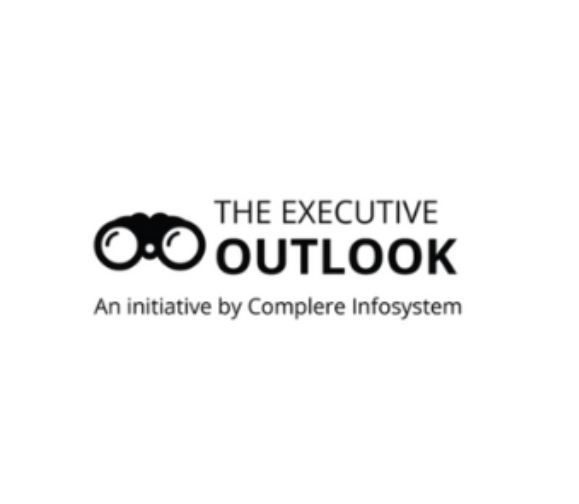In this special edition of The Executive Outlook, we had the pleasure of sitting down with Dr. Chad Musick, Principal of It Runs on Data, a data leader with decades of experience solving tough problems using logic, math, and a practical mindset. Chad’s journey is not just about numbers and databases. It’s about learning from real life, making smart choices, and always staying curious.
During a conversation, Chad shared that their story didn’t start with data; it started with video games.
“I was supposed to be in university,” Chad said with a laugh, “but I was busy playing an online game. That game taught me how to program.”
They added by sharing that it was this accidental path into programming that opened up their future. People from Silicon Valley noticed Chad’s skills and encouraged them to move there from Alaska. “At first, I thought it was easy for everyone,” Chad continued, “but I soon realized that it was something special.”
Chad moved to Silicon Valley in the early 1990s and began working as a software engineer. Over time, they became fascinated with one thing: data. According to Chad, the way data is collected, stored, and represented holds the power to change business outcomes.
“The connection between data and results—it pulled me in,” Chad said.
Chad worked at well-known companies like Autodesk and others, where they explored how data shapes tools and decisions. But Chad’s journey didn’t stop there. Chad went back to school mid-career and earned a PhD in Mathematical Sciences.
Chad explained, “I wanted to study math because it’s the base of all data and software engineering.”
Today, Chad lives in Japan with their family. They have been there for 18 years.
During the conversation, when asked about what is one of the biggest mistakes that companies make today?
Chad shares that companies rush into buying expensive technology without building the right culture first.
Chad explained that many small and midsized companies jump into using tools like Snowflake, BI platforms, and cloud services without truly needing them.
“If you don’t even have analysts, you shouldn’t be hiring data scientists or building massive data stacks,” they continued.
According to Chad, businesses must first build a culture of data—a way of thinking and working that values data, understands it, and uses it wisely.
How does Chad define a true data culture?
“Culture means how people treat data, share it, and ask questions about it,” Chad said.
They added by sharing that in some companies, teams treat data as a weapon—something they hold tightly to gain power. In others, everyone has open access to data without control, which can also be dangerous.
“The real answer lies in balance and intention,” Chad explained. “You need governance, policies, and purpose.”
Chad said that real culture is not about locking data or opening it up completely. It’s about building trust and shared understanding.
“One of the biggest complaints I hear is that every team speaks a different language. Culture means creating a shared language so the whole company can talk together.”
When asking Chad about when is the right time for companies to begin their reporting journey—and how they should approach it?
Chad shared an example. In many companies, the sales and finance teams record the same numbers differently.
“Sales want to show growth. Finance wants to follow rules,” he said. “This can lead to confusion—even reports showing a negative revenue day!”
Chad explained that understanding these differences is key to building the right data models.
Chad also said that timing is everything.
“When is the right time to start building a data culture?” Chad said, “When you see someone trying to do it themselves.”
Chad explained that when employees create their own reports in Excel or try to guess numbers using old data, it’s a sign. A sign that they need help. That’s when leaders must step in—not to control, but to support.
Chad added by sharing, “That’s what mentoring is, watching, guiding, and letting others grow.”
According to Chad, leaders must notice what’s happening around them and either provide the tools or support the people already trying to solve problems.
Chad also warned about the hidden cost of relying too much on Excel.
“If people are always downloading data into Excel, doing their own calculations, and making their own dashboards, it means something is broken,” they said.
Chad continued by saying that while Excel is powerful, it often becomes a shortcut that stops companies from building something better for everyone.
“If ten people are doing the same thing in Excel, it’s ten times the work and ten times the chance of mistakes,” Chad explained.
Chad talked about another red flag: manual entry. They shared, “Manual entry means humans typing things in. Even the best editor makes mistakes.”
Chad further defined that while it’s normal to make errors, companies should aim for systems that reduce manual work.
Chad also highlighted the importance of shared learning within organizations. “When one person has a question, it likely means others do too,” Chad said. “That’s when you create learning moments, team workshops, knowledge-sharing sessions, or updated documentation.”
During the discussion, Chad also talked about database choices. When asked which database beginners should use, Chad didn’t give a one-size-fits-all answer.
“It depends on your needs,” Chad said. “But if you’re just starting, go for something where you know your cost. Try MariaDB on a local machine.”
Chad explained that on-premises databases can be cheaper for small teams. They give control and allow for learning without big bills.
“Cloud platforms are great to test. But they often start free and then become very expensive just when it’s hard to leave.”
Chad shared a story about one company that saved $200,000 a year just by switching to the right AWS settings. “FinOps helps you find those savings,” Chad added.
Chad also spoke about the growing trend of companies moving back from cloud to on-premises systems. “It’s all about cost and control,” they said.
Chad spread light with their words when they explained that real success doesn’t come from the fanciest tool. It comes from understanding what your team needs, supporting them, and building a culture that grows with the business.
Chad emphasized that being data-driven isn’t about buying tools; it’s about asking the right questions. “It’s about knowing what matters, tracking it well, and then using that insight to do better tomorrow,” they said.
As the conversation came to a close, Chad left us with a thought to carry forward:
“Don’t throw money at the problem. Build it right. Build it together.”
In Chad Musick, we don’t just see a data expert. We see a leader who values simplicity, culture, and people. One who reminds us that good data practices start with care, not code.
Want to read more inspiring journeys like this? Stay with The Executive Outlook, where real leaders share their real stories.
Editor Bio

I’m Isha Taneja, serving as the Editor-in-Chief at "The Executive Outlook." Here, I interview industry leaders to share their personal opinions and provide valuable insights to the industry. Additionally, I am the CEO of Complere Infosystem, where I work with data to help businesses make smart decisions. Based in India, I leverage the latest technology to transform complex data into simple and actionable insights, ensuring companies utilize their data effectively.
In my free time, I enjoy writing blog posts to share my knowledge, aiming to make complex topics easy to understand for everyone.





